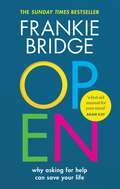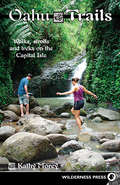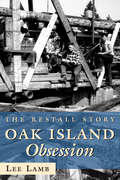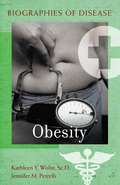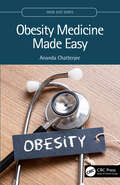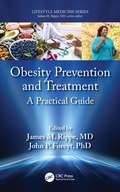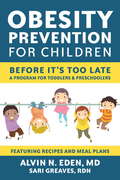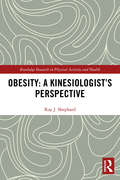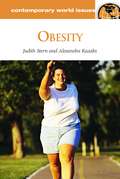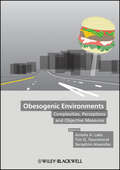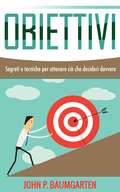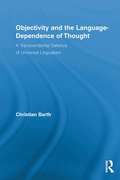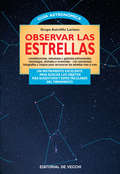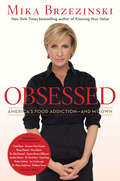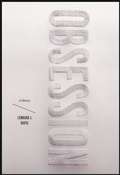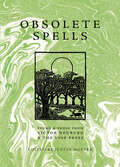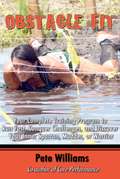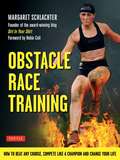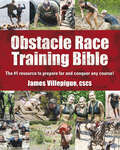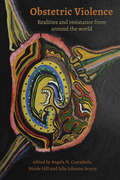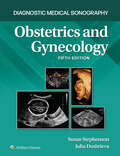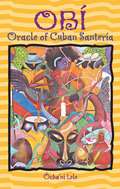- Table View
- List View
OPEN: Why asking for help can save your life
by Frankie Bridge Maleha Khan Dr Mike McPhillips**THE SUNDAY TIMES BESTSELLER**FEATURING A NEW CHAPTER ON COVID-19 AND MENTAL HEALTH 'Brave and beautiful... a first aid manual for your mind.' - Adam Kay, bestselling author of This is Going To Hurt'Very readable. Very relatable. Intensely moving but also full of practical advice.' - Alastair Campbell "I lived with it in silence. I tried to conquer it alone. And then I asked for help. It took me hitting hard, sharp rock bottom for me to truly recognize how ill I was." In OPEN, Frankie Bridge opens up about her ongoing journey from breakdown to breakthroughs and through self-loathing, hospitalization and self-acceptance. Part narrative exploration, part guide, this book will help you to understand the importance of talking and helping each other. It combines guidance and advice from the psychologist and psychiatrist who pulled her back from the brink along with their notes on her and conversations with her. This book will help people open up about their mental health and encourage us all to speak out.Afterword by Mind.'OPEN is an intimate, honest and powerful read. So personal you want to jump into the pages.' - Giovanna Fletcher, bestselling author of Happy Mum, Happy Baby'A beautiful read.' - Zoe Ball, BBC Radio 2
Oahu Trails
by Kathy MoreyThis guide to 45 great hikes on Oahu includes 2 new trips in the inland rainforests of Kailua and Waimanalo. Explore the beaches, cliffs, and rainforests, and learn about native plants, Hawaiian history, and local mythology.
Oak Island Obsession: The Restall Story
by Lee LambAs Bob and Mildred Lee, they amazed audiences with their death-defying motorcycle act. In reality they were Bob and Mildred Restall, parents of three, who balanced their glamorous show-business career with a happy, stable home life. In October 1959, the Restalls embarked on the ultimate family adventure, as Bob led his family to the east coast of Canada to dig for the famous treasure of Oak Island. For nearly six years they lived without telephone, hydro, or running water while newspapers and magazines chronicled their attempts to solve the mystery of the Money Pit. On August 17, 1965, their quest ended in tragedy when four men died. This biography, compiled by their daughter, includes material written by each family member. Lyrical descriptions of nature, amusing anecdotes, details of the dig, and numerous photographs help to tell the story. This book is a must for Oak Island enthusiasts.
Obesity (Biographies of Disease)
by Jennifer Petrelli Kathleen Y. Wolin Jennifer M. PetrelliWhat makes obesity a disease instead of just a matter of overeating? What are the genetic and environmental factors behind it? What new breakthroughs are being developing to combat it?
Obesity Medicine Made Easy
by Ananda ChatterjeeObesity is a complex disease, and this brief resource offers a comprehensive review of the most recent evidence on the multitude of ways to help treat this condition. Practically oriented for the reader to understand and easily apply the knowledge to patients, it specifically focuses on the lifestyle medicine approach to obesity management. This means applying the science of nutrition, movement, sleep, and stress with the help of cognitive behavioural therapy, motivational interviewing skills, positive psychology, and the circadian rhythm. This approach is combined with information on anti-obesity medications and bariatric surgery in a concise manner, immensely useful for the busy clinician. Key Features:• Captures the attention of the readers through a concise, lucid style of text and its organization.• Offers clarity on a common yet complex topic to physicians, dieticians, nurse practitioners and healthcare providers, leading to a change in practice and helping patients improve their weight which would impact underlying medical conditions.• Includes a comprehensive approach to management which combines the importance of medication, lifestyle habits and behavioural change.
Obesity Prevention and Treatment: A Practical Guide (Lifestyle Medicine)
by James M. Rippe John P. ForeytThe World Health Organization estimates that there are 2.1 billion individuals with obesity globally. Nearly three quarters of adults in the United States are overweight or obese. The average individual with obesity cuts ten years off their life expectancy, yet less than 40% of physicians routinely counsel individuals concerning the adverse health consequences of obesity. Obesity Prevention and Treatment: A Practical Guide equips healthcare practitioners to include effective weight management counselling in the daily practice of medicine. Written by lifestyle medicine pioneer and cardiologist, Dr. James Rippe and obesity expert Dr. John Foreyt, this book provides evidence-based discussions of obesity and its metabolic consequences. A volume in the Lifestyle Medicine Series, it provides evidence-based information about the prevention and treatment of obesity through lifestyle measures, such as regular physical activity and sound nutrition, as well as the use of new medications or bariatric surgery available to assist in weight management. Provides a framework and practical strategies to assist practitioners in safe and effective treatments of obesity. Contains information explaining the relationship between obesity and increased risk of heart disease, diabetes, cancer, osteoarthritis, and other chronic conditions. Chapters begin with bulleted key points and conclude with a list of Clinical Applications. Written for practitioners at all levels, this user-friendly, evidence-based book on obesity prevention and treatment will be valuable to practitioners in general medicine or subspecialty practices.
Obesity Prevention for Children: A Program for Toddlers & Preschoolers
by Alvin Eden Sari GreavesThe Definitive Program for Maintaining Healthy Weight for ChildrenObesity Prevention for Children is the definitive guide for parents and caregivers to put their children on the path to a happy and a healthy life, protected against childhood and adult obesity. Written by Dr. Alvin N. Eden, a well-known pediatrician and authority on childhood nutrition and obesity together with expertly crafted recipes and meal plans provided by Sari Greaves, Obesity Prevention for Children is a practical and authoritative resource for parents and caregivers.A child's early years are critical. Both in terms of forming lifelong healthy habits and proactive mindsets, the decisions that parents make for their children today will continue to shape them for the rest of their lives. By focusing on these early years, Obesity Prevention for Children puts the knowledge in your hands--the power to positively affect your children's health and well-being for years to come.From the Trade Paperback edition.
Obesity and Fertility
by Emily S. JungheimThis book outlines the current understanding of how obesity affects female reproductive function across the lifespan. Topics include physiology of the menstrual cycle and early pregnancy, best practices in the delivery of contraceptive and prenatal care and healthcare policy that weighs the evidence in appropriate balance with principles that respect women's rights. Special attention is devoted to the idea that obesity's adverse effects are likely trans-generational; that is, children born to obese mothers are at increased risk for obesity, diabetes and cardiovascular disease later in life. Patients and their physicians need to be aware of the additional risks obesity confers in pregnancy and outline a plan of care that includes counseling preconceptionally, antepartum, intrapartum and postpartum in order to decrease morbidity. Obesity and Fertility provides advice for reproductive medicine physicians and gynecologists to help guide obese patients toward improved reproductive health and outcomes.
Obesity: A Kinesiology Perspective (Routledge Research in Physical Activity and Health)
by Roy J. ShephardThere have been many books written on the subject of obesity, but most have approached the topic from the standpoint of the nutritionist, concluding from the somewhat fallacious evidence of changes in body mass that exercise has little place in the prevention or the treatment of obesity. This new volume, written by an exercise physiologist, approaches the topic through a thoughtful lens, suggesting that regular physical activity plays an important role in preventing the development of obesity, is a valuable adjunct therapy in the treatment of the established condition, and makes a solid contribution to the maintenance of weight loss once target weights have been achieved. In addition to detailing evidence that supports such a conclusion, the text offers a unique perspective on obesity over the ages. It evaluates methods of determining body fat content that are appropriate to field and epidemiological studies, and it looks at the timing and aetiology of the recent obesity epidemic. It also considers the diseases associated with obesity and the resultant medical costs, attempting to disentangle the respective contributions of a sedentary lifestyle and the resultant accumulation of fat to the observed patterns of ill-health. Other sections of the text suggest that adipose tissue has important functions beyond the passive storage of energy, and looks critically at the excuse of "bad genes" that some people plead to explain their excessive body weight. Obesity: A Kinesiologist’s Perspective should thus provide helpful information and be a key resource for students and researchers alike in bariatrics, kinesiology and nutrition as well as the related disciplines.
Obesity: A Reference Handbook
by Judith S. Stern Alexandra KazaksIn this reference, Stern and Kazaks, nutrition researchers at the U. of California, Davis, present information on the topic of obesity, including why people gain weight, why they succeed or fail in losing it, and who they believe is responsible. They cover its history, treatments, the controversy over whether it is a disease, healthy weight management, medications, herbs and supplements, surgery, the influence of food advertising, childhood obesity, and recent increases in obesity, and provide short biographies of key individuals, excerpts from documents, and an annotated list of resources and organizations.
Obesogenic Environments: Complexities, Perceptions and Objective Measures
by Amelia A. Lake Tim G. Townshend Seraphim AlvanidesIn a world where obesity has now reached epidemic proportions, a thorough understanding of the underlying causes of the problem is essential if society, public health initiatives and government policies are to successfully address the issue. The obesogenic environment describes all the possible influences that our environment presents which encourage overweight and obesity in individuals and populations. Beginning with an overarching introduction to obesity and its implications for health and wellbeing, the book will move on to consider such crucial areas as eating behaviours and food environments, physical activity and the environment, the urban environment, methods, policy and future research directions. Brings together expertise from across a range of disciplines Written by a truly multidisciplinary team of international authors Presents some of the most innovative thinking in the battle against obesity This groundbreaking book brings together for the first time the knowledge of experts with backgrounds in nutrition and dietetics, policy, epidemiology, environmental sciences, medical sciences, town planning and urban design, transport, geography and physical activity in order to offer a multidisciplinary approach to public health, suggesting new and exciting ways to shape our environment to better support healthful decisions.
Obiettivi - Segreti e tecniche per ottenere ciò che desideri davvero
by Maria Antonietta Ricagno John P. BaumgartenSai in che modo impostare degli obiettivi e realizzare i tuoi sogni? Molti sono i modi attraverso cui è possibile raggiungere il successo, ma la costante alla base di tutto resta sempre la necessità di impostare un obiettivo. Per realizzare i tuoi obiettivi, sono fondamentali strategie quali annotarli e individuare quelli che possono aggiungere valore alla tua vita. Nel perseguire il successo, occorre procedere un passo alla volta e al contempo stabilire delle scadenze ben precise. Scopri come delineare alcuni punti importanti su come realizzare i tuoi sogni. Definire e impostare degli obiettivi è importante nella realizzazione dei propri sogni, che possono essere al tempo stesso grandi e piccoli. Tuttavia, vi sono determinate cose da fare se si desidera realizzare i propri sogni. Fra queste, possiamo citare ad esempio un desiderio profondo di tali sogni e l'immaginare di viverli in prima persona. Inoltre, è importante sviluppare un piano su come intendi raggiungere tali sogni e così via. Come impostare in modo semplice gli obiettivi Scopri come impostare obiettivi chiari ed effettivamente raggiungibili. Gli obiettivi devono essere specifici e raggiungibili entro un determinato periodo di tempo. Mentre imposti questi obiettivi, devi trovarti nella condizione mentale giusta e realizzare un esame esaustivo degli obiettivi della tua vita. Una volta stabiliti gli obiettivi, devi dare loro un ordine di priorità in base alla loro importanza e ai piani di azione specifici delineati. Obiettivi: Segreti e tecniche per realizzare ciò che davvero desideri è un ottimo lavoro, strutturato in modo chiaro pensando a lettori di vario tipo. I contenuti del libro sono importanti e applicabili a chiunque desideri progredire nella propria vita. Grazie a un linguaggio semplice e comprensibile da chiunque, questo libro offre alcuni punti ben definiti su come una persona possa realizzare il proprio potenziale reale. <b
Object Relations in Psychoanalytic Theory
by Stephen A. Mitchell Jay R. GreenbergExamines the theories of Freud, Sullivan, Fromm, Jacobson, and other psychologists regarding interpersonal relationships.
Objectivity and the Language-Dependence of Thought: A Transcendental Defence of Universal Lingualism (Routledge Studies in Contemporary Philosophy #22)
by Christian BarthDoes thought depend on language? Primarily as a consequence of the cognitive turn in empirical disciplines like psychology and ethology, many current empirical researchers and empirically minded philosophers tend to answer this question in the negative. This book rejects this mainstream view and develops a philosophical argument in favor of a universal dependence of language on thought. In doing so, it comprises insights of two primary representatives of 20th century and contemporary philosophy, namely Donald Davidson and Robert Brandom. Barth offers an introduction to the debate concerning the language-dependence of thought and lays the methodological foundation for the subsequent argument in favor of a universal dependence of thought on language, presenting an account and defense of the transcendental method in reference to the writings of Peter F. Strawson. He then offers a transcendental argument in favor of a universal language-dependence of thought, beginning with a reevaluation of a basic idea for an argument originally presented by Donald Davidson. Later, two main objections to the conclusion of this transcendental argument are addressed and rejected using Robert Brandom’s inferentialist and normativist account of thought and language. In the course of doing so, the recent debate on Brandom’s work is addressed extensively, and main objections to Brandom’s work are presented and answered.
Observar las estrellas
by Grupo Astrófilo Lariano* Una verdadera guía del cielo, que se extiende (si es necesario) hasta el hemisferio austral, el más explorado en la actualidad. * Estrellas, nebulosas, galaxias, supernovas, estrellas variables y dobles, etc. Conozca las maravillas del universo no sólo por el hecho de haber leído su descripción, sino por haberlas visto con sus propios ojos, siguiendo las precisas indicaciones que encontrará en el texto y en los mapas. * El origen de las constelaciones: la historia de los más famosos grupos de estrellas * Los diversos objetos celestes: sus orígenes y características físicas. * Las características del cielo en las diversas estaciones del año. * Las constelaciones y los objetos visibles en los meses primaverales, veraniegos, otoñales, invernales y en los cielos australes. * Los alineamientos estelares: un instrumento indispensable para orientarse en el cielo. * Las fotos de los objetos celestes más espectaculares. Con tablas y datos para reconocerlos. * Un libro que amplía sus horizontes desde la Tierra hasta el infi nito, desde su ventana hasta los abismos del universo. El Grupo Astrófilo Lariano de Como, en Italia, recoge desde hace veinticinco años las observaciones de más de cien socios apasionados por la astronomía. Estas experiencias han llevado a la organización de innumerables encuentros de carácter divulgativo en escuelas, bibliotecas, círculos culturales y universidades. Además de la edición de un boletín, algunos de sus socios colaboran de forma periódica en revistas especializadas y periódicos. En Editorial De Vecchi ha publicado Curso de astronomía práctica, un manual que complementa cuanto se explica en este libro.
Obsessed: America's Food Addiction--and My Own
by Mika BrzezinskiMika Brzezinski is at war against obesity. 'On Morning Joe,' she is often so adamant about improving America's eating habits that some people have dubbed her "the food Nazi. " What they don't know is that Mika wages a personal fight against unhealthy eating habits every day, and in this book she describes her history of food obsession and distorted body image, and her lifelong struggle to be thin. She believes it's time we all learned to stop blaming ourselves, and each other, and look at the real culprits-the food we eat and our addiction to it. Mika feels the only way to do this is to break through the walls of silence and shame we've built around obesity and food obsessions. She believes we need to talk openly about how our country became overweight, and what we can do to turn the corner and step firmly onto the path of health. So Mika made a deal with her very close friend Diane: they would work together on this book and on their personal goals, to help Diane drop 75 pounds and to break Mika's obsession with staying superthin. As she did in her bestseller 'Knowing Your' 'Value,' Mika has packed each chapter with insights from notable people in medicine, health, business, the arts, and politics. Singer Jennifer Hudson, the late writer and director Nora Ephron, TV host Gayle King, New Jersey governor Chris Christie, and many others open up to Mika about their own challenges and what works for them when it comes to food and diet. It's time we stopped whispering the F-word ("fat") the way we used to shun the C-word ("cancer"). This book-with its trademark Brzezinski smarts, honesty, and courage-launches us into a no-holds-barred conversation with family and friends, in schools and kitchens, in Congress and the food industry, to help us all find ways to tackle one of the biggest problems standing between us and a healthier America.
Obsession: A History
by Lennard J. DavisWe live in an age of obsession. Not only are we hopelessly devoted to our work, strangely addicted to our favorite television shows, and desperately impassioned about our cars, we admire obsession in others: we demand that lovers be infatuated with one another in films, we respond to the passion of single-minded musicians, we cheer on driven athletes. To be obsessive is to be American; to be obsessive is to be modern. But obsession is not only a phenomenon of modern existence: it is a medical category -- both a pathology and a goal. Behind this paradox lies a fascinating history, which Lennard Davis tells in "Obsession". Beginning with the roots of the disease in demonic possession and its secular successors, Davis traces the evolution of obsessive behavior from a social and religious fact of life into a medical and psychiatric problem. From obsessive aspects of professional specialization to obsessive sex and nymphomania, no variety of obsession eludes Davis's graceful analysis. "Obsession" also considers the clinical definition of the condition: Davis investigates the huge increase (estimates suggest up to 600-fold) in diagnosis of obsessive-compulsive disorder over the past thirty years. Surveying the many ways in which doctors today treat OCD, he points out the limitations of and contradictions within the biological definitions of the disease. Impassioned, witty, and learned, "Obsession" is for anyone -- from compulsive hand washers to professional psychologists -- who has been fascinated by, struggled with, or cultivated obsession.
Obsolete Spells: Poems & Prose from Victor Neuburg & the Vine Press
by Justin HopperA collection of rare pagan poetry and purple prose from the heart of the 1920s counterculture.Victor Neuburg is most famous for two things: discovering Dylan Thomas, and being the man that Aleister Crowley once turned into a camel. Obsolete Spells offers another side of Neuburg, through his own poems and the strange books of Vine Press, the hand-operated imprint he ran from his West Sussex cottage between 1920 and 1930. Neuburg's youth involved terrifying-yet-farcical years as Crowley's lover, victim, and magickal sidekick. His later period, as editor of the influential "Poet's Corner" column for the Sunday Referee, found him a key figure in London's literary scene. But in between, Neuburg acted as a conduit for bohemian writers, arts luminaries, and the sexually adventurous: Peter Warlock set his words to music, singer Marian Anderson lived in his spare room, and he was a fixture at utopian community, the Sanctuary. Through it all, he turned the handle on the Vine Press: books of nature writing and anonymous song; poems and artwork worthy of The Wicker Man, side-by-side with a book on cricket. Obsolete Spells offers a selection of Neuburg's work and others from Vine Press books--over-the-top hymns to the Old Gods, tales from a utopian landscape, and more, most of which has been out of print for a century.
Obstacle Fit
by Pete WilliamsDo you want to climb walls, shiver under barbwire, shimmy through culverts, negotiate monkey bars and ropes, plunge into dumpsters of ice water, and run miles through dirt, mud, and water - all the while testing your mental and physical limits with a body you've chiseled into the best shape of its life?If so, you're an aspiring obstacle racer. And you're not alone.In Obstacle Fit, Pete Williams gets you ready to tackle Tough Mudder, Spartan Race, Warrior Dash, and the dozens of other obstacle races that have become the fastest growing segment of participatory sports.More than 2 million people annually compete in obstacle races, pushing their bodies to extremes and posting images of themselves muddy and triumphant via social media.Athletes typically train for an obstacle race with either an anaerobic, strength-based program featuring little running or with a regimen of heavy running and little core conditioning. As a result, they're ill prepared for alternating tests of running and obstacles and can even risk injury.Williams, a competitive obstacle racer, NASM-certified personal trainer, and co-author of seven fitness books, shows you how to train efficiently for obstacle races with an integrated, six-week program of core conditioning and interval training that mirrors the obstacles, rhythms, and challenges of an actual race.Obstacle Fit, which requires little equipment, can be used as a stand-alone program or adapted to complement your existing training. Performed indoors or outdoors, Obstacle Fit focuses on flexibility, strength, stability, and speed, helping you navigate any obstacle race quickly and powerfully.
Obstacle Race Training
by Margaret Schlachter Hobie CallThe beauty of obstacle course racing is that it gets you out of your everyday routine and lets you experience life. If you are stuck in a cubicle or trapped in an urban jungle-congested traffic and crowds are your daily obstacles. Running an obstacle course race gives you the chance to get back to nature-to roll in it, get dirty, and tap into your primal self so you can experience life-in the raw, unedited and real.Margaret Schlachter is one the foremost competitors in obstacle course racing today. She put together this simple guide to make your obstacle race experience everything it's supposed to be-a test of your true self. She describes first-hand her personal training methods in learning to climb a rope, scale a wall, flip a tire, throw a spear, and carry a sandbag. More importantly, she provides guidance on how to get yourself mentally and spiritually prepared for the big day-and how to dig deep within yourself during a race to find the last ounce of strength to carry you across that finish line.Every weekend thousands of competitors run obstacle races all over the world. Winning or losing is secondary. More important for them is the ability to meet the physical and mental challenges and achieve personal success by completing the race. Obstacle Race Training is an invaluable resource that enables each and every competitor to experience the maximum level of success that they are capable of.
Obstacle Race Training Bible: The #1 Resource to Prepare for and Conquer Any Course!
by James VillepigueThe first how-to guide to help readers prepare for and conquer a new and growing form of distance racing popping up all over the country, written by bestselling fitness author James Villepigue. Obstacle Race Training Bible provides readers with one-stop access to everything you need to know to prepare for and successfully complete a Tough Mudder, Spartan Race, Warrior Dash, or any of the other international or regional obstacle races that are taking the world by storm. All of these races combine running various distances and terrain with hard-core obstacles that are both physically and mentally challenging: climbing through pitch-black flooded tubes and over walls, carrying logs uphill, traversing monkey bars, crawling through mud and under barbed wire, leaping over burning hay bales, swimming in ice cold water, navigating through live wires, and more. This combination of running and obstacles is what gives participants a very different kind of challenge than they get with a 5K, marathon, or triathlon. It's a combination that also requires a very different approach to training and preparation, and that's what this book provides. Coverage includes: Profiles of all the major races: running distance, obstacles involved, completion percentage, fitness level required, etc. Obstacle overviews, including photos of what they look like, the mental and physical challenges involved, and the most effective strategies for completing them Obstacle-specific exercises that condition participants for the strength, stamina, flexibility, and mental toughness needed to complete the obstacle 8-week training programs designed for complete novices, elite athletes, and everyone in between Important information on what to wear, nutrition during training, and race day strategies
Obstetric Violence: Realities, and Resistance from Around the World
by Angela N. Castañeda;Nicole Hill;Julie Johnson SearcyIn this book, we make space to interrogate obstetric violence; from its historical and legal roots and contemporary realities, to responses of advocacy and resistance. Through the lens of obstetric violence, we are able to see overlap in structural vulnerability across continents as well as recognize the ways in which obstetric violence is symptomatic of larger global problems including systemic injustices related to reproductive health. Combining the perspectives of care providers, birthing people, advocates and researchers, our volume seeks to include both a systematic and structural understanding of obstetric violence. We bring together diverse voices, from practitioners, to activists, to academics, and provide a global perspective on obstetric violence with research from around the world, including indigenous communities from North America (Canada and Hawaii), examples from Latin American and Caribbean countries as well as country-specific cases from Argentina, Australia, Egypt, Mexico, Portugal, and the United States. The range of disciplinary perspectives and global experiences presented in this book demonstrates that obstetric violence is neither bound to one discipline, nor site specific. Together the chapters of this volume work to understand obstetric violence, moving beyond static definitions towards a spectrum of lived experiences that highlight three main areas: Legislation and Policy, Experiencing Obstetric Violence, and Advocacy, Resistance and Reframing. The time for a global recognition of obstetric violence – of the larger structural forces embedded in systems that cross cultures and violate bodies in acutely vulnerable life moments – is now. By naming it and saying it out loud we recognize obstetric violence exists and can together begin the process of systemic change necessary to prevent it.
Obstetricks: Mayo Clinic Tips and Tricks for Pregnancy, Birth and More
by Julie A. Lamppa Kerry SchwalbachLearn how to have an empowered, more joyful birth with this concise guide from Mayo Clinic, named the #1 hospital in the world by Newsweek. Giving birth can be — and should be — an exciting, positive experience. While every labor and delivery has unique challenges, you can help to make it the best possible experience through a combination of comfort techniques, education and an understanding of options. This concise guide to pregnancy and childbirth brings you the expertise of a certified nurse-midwife at Mayo Clinic and a certified doula. It&’s packed with information based on the most current evidence, yet rooted in long-trusted natural methods of caring for laboring women. With a unique spiral-bound flipbook format, the book&’s 100+ bite-sized topics can be perused one page at a time while lying in bed, eating breakfast or riding a stationary bike. The front pages offer the most important information for setting up a satisfying childbirth experience, while the back pages add more empowering details, tricks and medical information. Inside you&’ll find tips for: • Creating healthy habits during pregnancy • Recognizing what&’s normal as baby grows • Planning and preparing for the birth — mentally and practically • Managing labor pain, including natural techniques and medical options • Providing crucial support as a labor partner • Keeping focused on the ultimate goal: a healthy mom and baby You&’ll also get the messy truth of what to expect postpartum, advice for enjoying the early days with a newborn and more. Obstetricks equips parents with confidence and an expert toolkit as they prepare for the main event — welcoming baby to the world.
Obstetrics and Gynecology (Diagnostic Medical Sonography Series)
by Susan Stephenson Julia DmitrievaPart of the highly regarded Diagnostic Medical Sonography series, Susan Raatz Stephenson and Julia Dmitrieva’s Obstetrics and Gynecology, 5th Edition, thoroughly covers the core content students need to master in today’s rigorous sonography programs. Careful, collaborative editing ensures consistency across all three titles in this series: The Vascular System, Abdomen and Superficial Structures, and Obstetrics and Gynecology, providing the right content at the right level for both students and instructors.
Obí: Oracle of Cuban Santería
by Ócha'Ni Lele• The first book to provide complete, specific instructions for casting the obi oracle of the Santería faith. • Uses the shell of a coconut, which embodies the spirit of Obí, as a divination tool. • Includes a detailed “mojuba” or prayer that awakens the orishas and invites them to speak. • Examines in depth the five basic patterns that appear when obí is cast and explains how to interpret the oracle's answer. • Explores the fifty additional patterns and meanings contributed by ten orishas closely associated with the orisha Obí One of the paths to the spirits within Santeria is through a divination technique known as obi, the coconut oracle, which gives the petitioner access to the orisha of the same name. The orisha Obí began as a mortal human who ascended to become an orisha as a reward for good deeds done on Earth, then fell from grace because of excessive pride. When he descended back to Earth, his spirit was embodied in the coconut palm. Though he no longer has a tongue, he can answer questions posed to him through the patterns made by four pieces of coconut shell cast as a divination tool. Obí: Oracle of Cuban Santería is the first book to fully explore the sacred body of lore surrounding Obí, as well as his particular rituals and customs, including opening considerations, casting and interpreting the oracle, and employing advanced methods of divination. Also explained are the previously unpublished secrets of closing the oracle properly so that any negative vibrations will be absorbed by the coconuts and permanently removed from the diviner's home.
